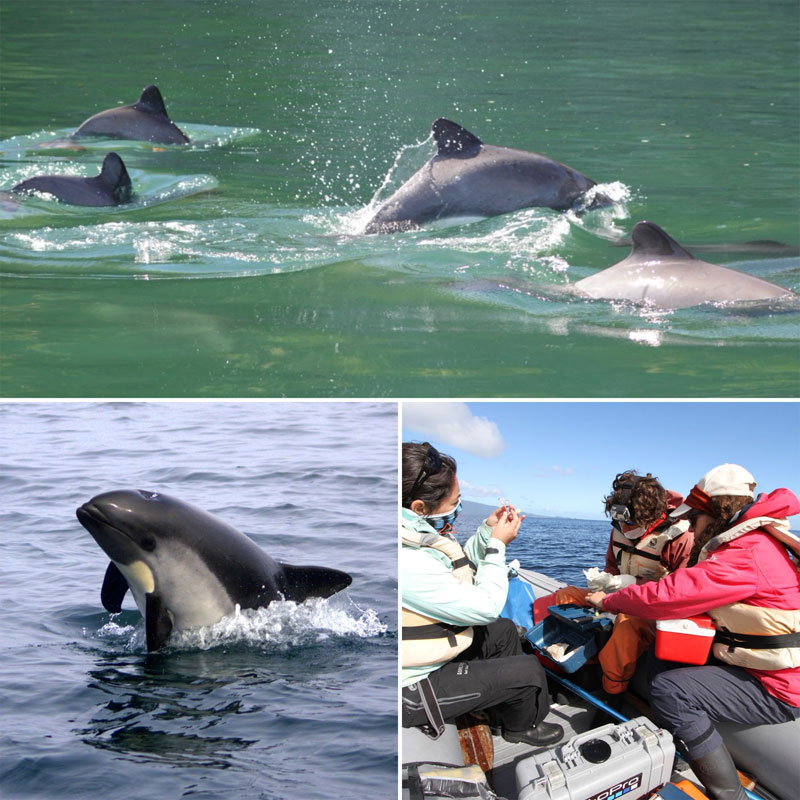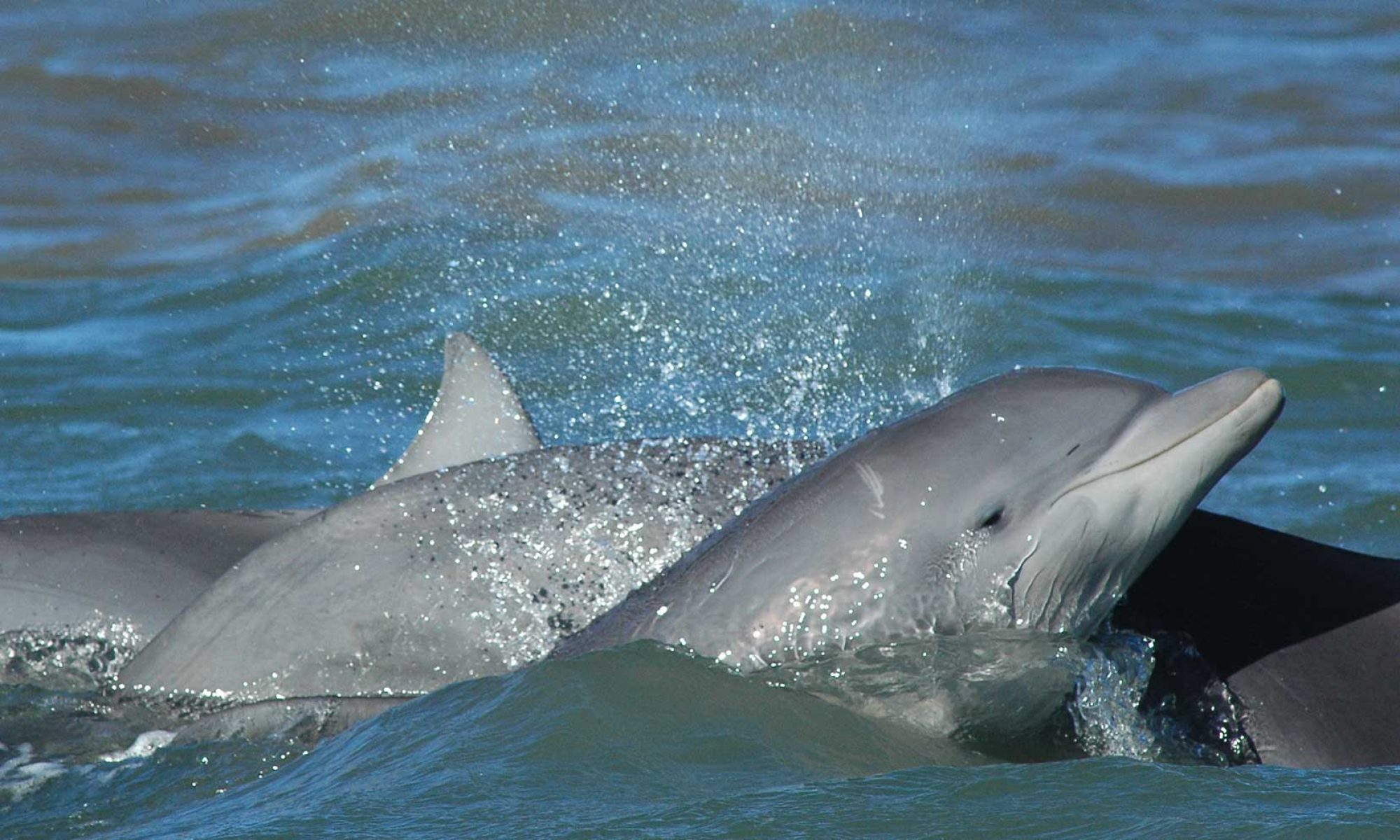
A groundbreaking study led by Cayetano Espinosa-Miranda (Yaqu Pacha Chile), supported by YAQU PACHA and Nuremberg Zoo, has revealed alarming evidence of environmental stress in dolphins off the Chilean coast of Patagonia. By analyzing the skin microbiomes of Chilean dolphins and Peale's dolphins, the researchers discovered that individuals living in areas heavily affected by aquaculture and urbanization show a striking loss of microbial diversity—replaced by opportunistic bacteria such as Vibrio and Halomonas.
These changes may be early warning signs of compromised health and indicate the hidden toll that human activities are taking on marine animals. The dolphin skin microbiome is proving to be a valuable, non-invasive indicator for monitoring the health of wild populations and the ecosystems they inhabit.
YAQU PACHA and Nuremberg Zoo are committed to supporting and expanding this important field of research. In order to protect endangered species and their habitats, we urgently need to intensify our efforts to monitor the health of the oceans through science.
To the article: Habitat Anthropization Shapes the Skin Microbiome of Dolphins: A Red Flag About Health


